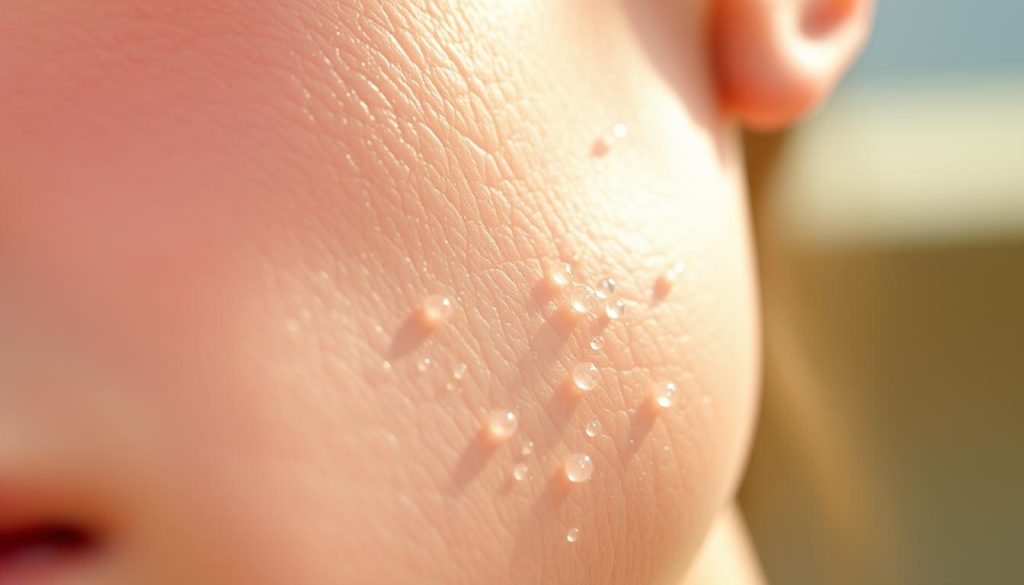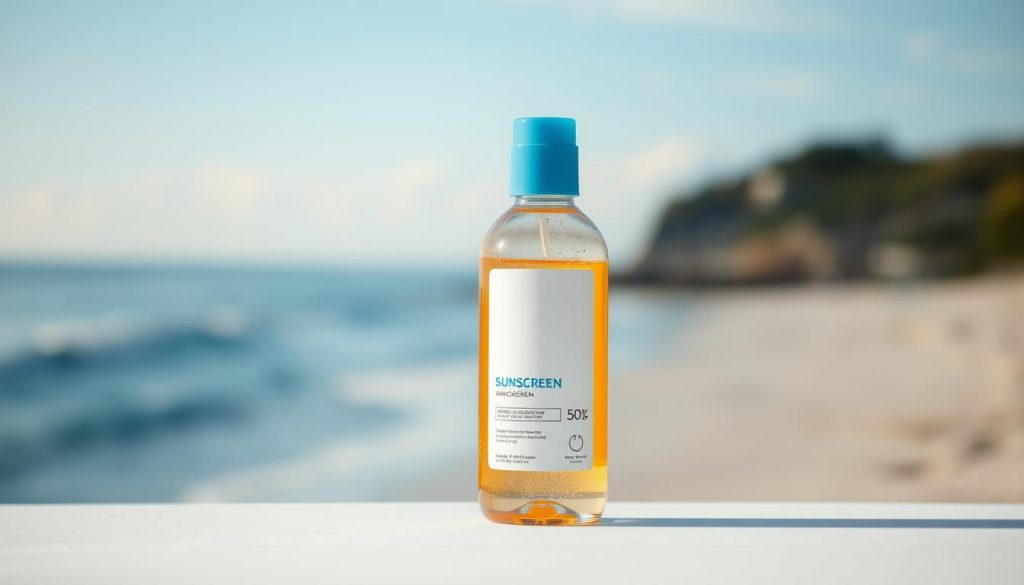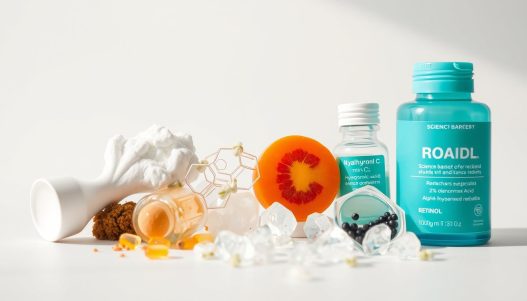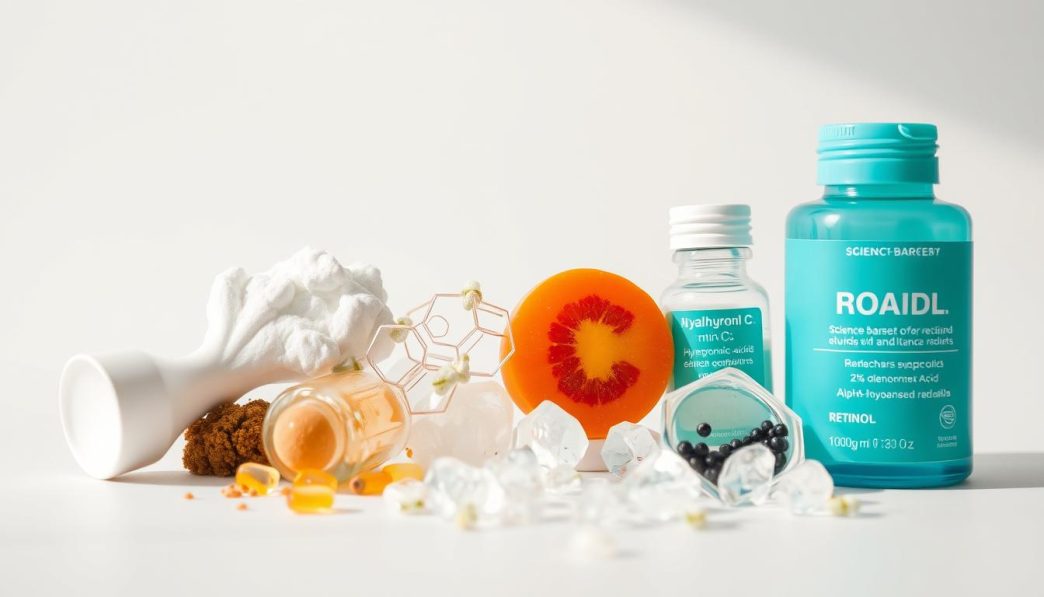Achieving youthful skin is a top priority for many, and with the vast array of anti-aging skincare products available, it can be challenging to determine what truly works.
Using science-backed ingredients is crucial in the pursuit of healthy, youthful-looking skin. Clinically tested and proven components can make a significant difference in the effectiveness of skincare products.
By understanding the importance of these ingredients, individuals can make informed decisions about their skincare routines, ultimately leading to more effective anti-aging strategies.
Key Takeaways
- Understanding the role of science-backed ingredients in anti-aging skincare is crucial.
- Clinically tested ingredients can significantly enhance skincare effectiveness.
- Informed decisions about skincare routines lead to better anti-aging results.
- Youthful skin can be achieved through the right combination of products and ingredients.
- Effective anti-aging strategies involve more than just product selection.
Understanding How Skin Ages
The process of skin aging is complex, involving both intrinsic and extrinsic factors. Intrinsic aging is genetically determined, while extrinsic aging is influenced by environmental factors such as UV exposure, pollution, and lifestyle choices.
Intrinsic vs. Extrinsic Aging Factors
Intrinsic aging refers to the natural aging process that occurs over time, influenced by genetic factors. This type of aging is characterized by a gradual decline in skin elasticity and firmness. Extrinsic aging, on the other hand, is caused by external factors such as UV radiation, smoking, and environmental stressors, leading to premature aging signs like wrinkles and age spots.
Common Signs of Aging Skin
Aging skin often exhibits several common signs. These include wrinkles, fine lines, loss of elasticity, and age-related discoloration.
Wrinkles and Fine Lines
Wrinkles and fine lines are among the most noticeable signs of aging skin. They are caused by a combination of intrinsic aging and extrinsic factors like UV exposure and repetitive facial expressions.
Loss of Elasticity and Firmness
As skin ages, it loses its elasticity and firmness due to the decline in collagen and elastin production. This results in sagging skin and a less youthful appearance.
The Science Behind Effective Anti-Aging Skincare
Effective anti-aging skincare is rooted in science, from the ingredients used to their concentrations and formulations. Understanding how different components work at the cellular level is crucial for combating aging skin.
How Anti-Aging Ingredients Work at the Cellular Level
Anti-aging ingredients target various aspects of the aging process. For instance, retinoids stimulate cell turnover and collagen production, while antioxidants neutralize free radicals that damage skin cells. Peptides signal the skin to produce more collagen, enhancing skin elasticity.
The Importance of Clinical Studies and Evidence
Clinical studies are vital in validating the efficacy of anti-aging ingredients. These studies provide evidence of how well an ingredient works and its safety profile. For example, numerous studies have shown that retinol significantly improves skin texture and reduces fine lines.
Understanding Ingredient Concentrations and Formulations
The concentration of an ingredient and its formulation can significantly impact its effectiveness. A product with a high concentration of an active ingredient may be more effective, but it can also increase the risk of irritation. A well-formulated product balances efficacy with tolerability.
| Ingredient | Concentration | Benefits |
|---|---|---|
| Retinol | 0.25% – 1% | Improves skin texture, reduces fine lines |
| Vitamin C | 10% – 20% | Antioxidant, brightens skin |
| Peptides | 3% – 5% | Stimulates collagen production |
Retinoids: The Gold Standard in Anti-Aging
Retinoids, derivatives of vitamin A, are considered a cornerstone in the fight against aging skin. Their effectiveness in addressing various signs of aging, from fine lines and wrinkles to skin discoloration, has made them a staple in many anti-aging skincare routines.
Different Types of Retinoids
There are several types of retinoids used in skincare products, each with its unique characteristics and benefits. The most common include:
- Retinol: A gentler, over-the-counter (OTC) retinoid that converts to retinoic acid in the skin.
- Tretinoin: A prescription-strength retinoid that is more potent than retinol.
- Adapalene: A synthetic retinoid that is often used in combination with other acne treatments.
How Retinoids Combat Aging
Retinoids work at the cellular level to promote skin renewal and collagen production. They help to:
- Increase cell turnover, reducing the appearance of fine lines and wrinkles.
- Stimulate collagen production, improving skin elasticity.
- Fade age spots and hyperpigmentation.
As noted by Dr. K. L. Bhutani, a dermatologist at the University of California, “Retinoids are one of the most well-studied anti-aging ingredients, with a wealth of evidence supporting their efficacy.”
“Retinoids have been shown to improve skin texture, reduce wrinkles, and even out skin tone, making them an essential component of any anti-aging skincare regimen.”
Potential Side Effects and How to Minimize Them
While retinoids are highly effective, they can cause side effects such as redness, irritation, and dryness. To minimize these effects:
| Strategy | Description |
|---|---|
| Start with lower concentrations | Begin with products containing lower concentrations of retinoids and gradually increase as your skin becomes more tolerant. |
| Use it at night | Apply retinoid products at night, as they can make your skin more sensitive to sunlight. |
| Moisturize | Follow up with a moisturizer to help soothe and hydrate the skin. |
By understanding the different types of retinoids, how they work, and how to minimize potential side effects, you can harness their anti-aging benefits to achieve healthier, more youthful-looking skin.
Antioxidants: Protecting Skin from Free Radical Damage
As we age, our skin’s natural antioxidant defenses weaken, making it essential to incorporate antioxidant-rich products into our skincare routine. Antioxidants play a vital role in protecting the skin from free radical damage caused by environmental stressors such as UV exposure and pollution.
Vitamin C and Its Derivatives
Vitamin C is a powerful antioxidant that brightens the skin, improves collagen production, and reduces the appearance of fine lines and wrinkles. Its derivatives, such as sodium ascorbate and magnesium ascorbyl phosphate, offer enhanced stability and penetration.
Vitamin E and Ferulic Acid
Vitamin E is known for its ability to protect cell membranes from damage, while ferulic acid enhances the stability of vitamins C and E, providing synergistic antioxidant benefits. Together, they offer comprehensive protection against oxidative stress.
Niacinamide (Vitamin B3)
Niacinamide is a versatile antioxidant that improves skin elasticity, enhances the barrier function, and reduces inflammation. It is effective in minimizing the appearance of pores and improving skin hyperpigmentation.
Coenzyme Q10 and Resveratrol
Coenzyme Q10 (CoQ10) is an antioxidant that is naturally present in the body, helping to generate energy in cells and protect against oxidative damage. Resveratrol, found in grapes and berries, is known for its anti-inflammatory properties and ability to protect against UV damage.
| Antioxidant | Benefits |
|---|---|
| Vitamin C | Brightens skin, improves collagen production |
| Vitamin E & Ferulic Acid | Protects cell membranes, enhances antioxidant stability |
| Niacinamide | Improves skin elasticity, reduces inflammation |
| CoQ10 & Resveratrol | Protects against oxidative damage, anti-inflammatory |
By incorporating these antioxidants into your skincare routine, you can significantly enhance your skin’s protection against free radical damage and promote a more youthful appearance.
Peptides: Building Blocks for Youthful Skin
Peptides, being short chains of amino acids, have been identified as key players in the pursuit of youthful, radiant skin through their ability to boost collagen production.
Stimulating Collagen Production
Peptides work by stimulating collagen production, a crucial factor in maintaining skin elasticity and firmness. As we age, collagen production naturally decreases, leading to wrinkles and sagging skin.
Key Benefits of Peptides:
- Stimulate collagen production
- Improve skin elasticity
- Reduce fine lines and wrinkles
Most Effective Peptide Complexes
Various peptide complexes have been developed, each with unique benefits. Understanding these can help in choosing the most effective products.
Signal Peptides
Signal peptides direct the production of collagen, elastin, and other proteins, enhancing skin firmness.
Carrier Peptides
Carrier peptides help in the delivery of trace elements like copper, which is essential for collagen production.
Neurotransmitter-Affecting Peptides
These peptides work by relaxing facial muscles, thereby reducing wrinkles caused by repetitive facial expressions.
| Peptide Type | Function | Benefits |
|---|---|---|
| Signal Peptides | Direct collagen production | Improved skin firmness |
| Carrier Peptides | Deliver trace elements | Enhanced collagen production |
| Neurotransmitter-Affecting Peptides | Relax facial muscles | Reduced wrinkles |
Hydroxy Acids: Exfoliating for Renewed Skin
Hydroxy acids are a crucial component in anti-aging skincare, offering a science-backed solution for achieving renewed and healthier-looking skin. These compounds work by gently exfoliating the skin, removing dead skin cells, and revealing a brighter complexion.

Alpha Hydroxy Acids
Alpha hydroxy acids (AHAs) are a group of compounds that include glycolic acid, lactic acid, and mandelic acid. They are known for their ability to penetrate the skin, promoting cell turnover and collagen production. AHAs are particularly effective in addressing fine lines, wrinkles, and skin discoloration.
- Glycolic Acid: Derived from sugar cane, it’s one of the most commonly used AHAs due to its small molecular size, allowing for deep penetration.
- Lactic Acid: Found in sour milk, it’s gentler than glycolic acid and also provides hydration.
- Mandelic Acid: Sourced from bitter almonds, it’s known for its antibacterial properties and is suitable for sensitive skin.
Beta Hydroxy Acid
Beta hydroxy acid, specifically salicylic acid, is another effective exfoliant. It’s oil-soluble, making it ideal for penetrating into pores and addressing acne, blackheads, and other skin concerns related to clogged pores.
Polyhydroxy Acids
Polyhydroxy acids (PHAs), such as gluconolactone and lactobionic acid, are gentler than AHAs and BHAs, making them suitable for sensitive skin. They offer similar benefits, including exfoliation and hydration, without the irritation often associated with other hydroxy acids.
Incorporating hydroxy acids into your skincare routine can lead to significant improvements in skin texture and appearance. However, it’s essential to start with lower concentrations and gradually increase as your skin becomes more tolerant.
Age-Defying Skincare: Science-Backed Anti-Aging Ingredients
Effective anti-aging skincare relies on ingredients that are backed by scientific research. These ingredients work synergistically to address various signs of aging, from dehydration and loss of skin elasticity to the appearance of fine lines and wrinkles.
Hyaluronic Acid and Hydration
Hyaluronic acid is a naturally occurring substance in our skin that can hold up to 1000 times its weight in water, making it an excellent humectant. It helps maintain skin hydration, plumping, and firmness, reducing the appearance of fine lines and wrinkles. Products containing hyaluronic acid are particularly beneficial for dry or mature skin.
Ceramides and Skin Barrier Function
Ceramides are essential lipids that help restore the skin’s barrier function, improving its ability to retain moisture and protect against environmental stressors. By incorporating ceramides into their skincare routine, individuals can enhance their skin’s resilience and overall health.
Growth Factors and Cytokines
Growth factors are proteins that stimulate cell growth and renewal. They play a crucial role in wound healing and skin rejuvenation. Cytokines, on the other hand, are signaling molecules that help regulate the immune response and inflammation in the skin.
Squalane and Fatty Acids
Squalane is a natural antioxidant that helps protect the skin from oxidative stress and moisture loss. Fatty acids, particularly omega-3 and omega-6, are vital for maintaining the skin’s lipid barrier and supporting its natural repair processes.
| Ingredient | Function | Benefits |
|---|---|---|
| Hyaluronic Acid | Humectant | Hydrates, plumps, and firms the skin |
| Ceramides | Restores skin barrier | Improves moisture retention and skin resilience |
| Growth Factors | Stimulates cell growth | Enhances skin renewal and wound healing |
| Squalane | Antioxidant | Protects against oxidative stress and moisture loss |
By understanding and leveraging these science-backed anti-aging ingredients, individuals can create an effective skincare routine that addresses their specific skin concerns and promotes healthier, more youthful-looking skin.
Natural Anti-Aging Ingredients with Scientific Support
The quest for youthful, radiant skin has led many to explore natural anti-aging ingredients, but which ones are backed by science? As the skincare industry continues to evolve, it’s becoming increasingly clear that nature provides a wealth of effective solutions.
Green Tea Extracts and Polyphenols
Green tea extracts are rich in polyphenols, powerful antioxidants that combat free radical damage. Studies have shown that these compounds can help reduce inflammation and protect the skin from environmental stressors, thereby supporting the skin’s natural barrier function.
Bakuchiol: A Natural Retinol Alternative
Bakuchiol has emerged as a natural alternative to retinol, offering similar anti-aging benefits without the potential irritation associated with retinoids. Research indicates that bakuchiol can stimulate collagen production and improve skin elasticity.
Plant Stem Cells and Botanical Extracts
Plant stem cells and various botanical extracts have gained attention for their potential anti-aging properties. These ingredients are believed to promote skin regeneration and protect against environmental damage, contributing to a more youthful appearance.
Centella Asiatica (Cica) and Wound Healing
Centella Asiatica, commonly known as Cica, has been used for centuries in traditional medicine. Its ability to enhance wound healing and reduce inflammation makes it a valuable ingredient in anti-aging skincare, promoting healthier, more resilient skin.
By incorporating these scientifically supported natural ingredients into your skincare routine, you can harness the power of nature to achieve healthier, more youthful-looking skin.
Sunscreen: The Ultimate Anti-Aging Product
Sunscreen plays a pivotal role in maintaining youthful, healthy-looking skin. As we age, our skin’s natural ability to protect itself from the sun’s harmful rays diminishes, making sunscreen an essential component of any anti-aging skincare routine.

UVA vs. UVB Protection
Understanding the difference between UVA and UVB protection is crucial. UVA rays penetrate deep into the skin, causing aging and wrinkles, while UVB rays are primarily responsible for causing redness and sunburn. A broad-spectrum sunscreen protects against both.
Mineral vs. Chemical Sunscreens
Mineral sunscreens, containing zinc oxide or titanium dioxide, work by physically blocking UV rays, while chemical sunscreens absorb UV radiation. Both types have their benefits, and the choice often comes down to personal preference and skin type.
Daily Sun Protection Strategies
For effective daily protection, apply a broad-spectrum sunscreen with an SPF of at least 30. Reapply every two hours or immediately after swimming or sweating. Combining sunscreen with other protective measures, like clothing and shade, enhances its effectiveness.
New Developments in Sun Protection Technology
Recent advancements have led to more elegant, user-friendly sunscreens that are less likely to leave a white cast or feel greasy. Innovations include sunscreens with antioxidants and those designed for specific skin types or concerns.
As dermatologist Dr. Jane Smith notes, “Sunscreen is the most critical anti-aging product you can use. It’s the only product that can prevent photoaging.”
By incorporating sunscreen into your daily skincare routine, you can significantly reduce the visible signs of aging and maintain healthier, more youthful-looking skin.
Choosing Anti-Aging Products for Your Skin Type
The journey to youthful skin begins with choosing anti-aging products that are tailored to your skin type. Understanding whether you have dry, oily, combination, or sensitive skin is crucial in selecting products that will effectively address your specific skin concerns.
Dry and Mature Skin Considerations
For dry and mature skin, it’s essential to focus on hydration and nourishment. Look for products rich in hyaluronic acid and ceramides to lock in moisture and repair the skin barrier. Anti-aging products containing retinol can also be beneficial, but start with a lower concentration to avoid irritation.
Oily and Combination Skin Approaches
If you have oily or combination skin, your focus should be on controlling oil production while addressing signs of aging. Niacinamide is an excellent ingredient as it helps to regulate sebum production and improve skin elasticity. Lightweight, oil-free formulations are preferable to avoid clogging pores.
Sensitive and Reactive Skin Solutions
For sensitive and reactive skin, it’s vital to choose anti-aging products that are gentle and less likely to cause irritation. Opt for products labeled as hypoallergenic or fragrance-free. Ingredients like green tea extract and bakuchiol can be soothing and effective.
Addressing Multiple Concerns Simultaneously
Many individuals face multiple skin concerns simultaneously, such as fine lines, wrinkles, and hyperpigmentation. In such cases, look for products that offer a combination of anti-aging ingredients. Using a product with antioxidants, peptides, and hydroxy acids can be an effective strategy to tackle various signs of aging at once.
Building an Effective Anti-Aging Skincare Routine
An anti-aging skincare routine is not just about using the right products, but also about using them at the right time. A well-structured routine can make a significant difference in the appearance of aging skin.
Morning Routine Components
A morning anti-aging skincare routine should focus on protection and prevention. It typically includes a gentle cleanser, a toner, an antioxidant serum (such as one containing Vitamin C), a moisturizer, and a broad-spectrum sunscreen with at least SPF 30. These products help prepare the skin for the day ahead, protecting it from environmental stressors and UV damage.
Evening Routine Components
The evening routine is geared towards repair and rejuvenation. It often starts with a cleanser, followed by a toner, and then the application of active ingredients such as retinoids or peptides. A nourishing moisturizer or night cream is applied last to help lock in the previous products and provide intense hydration.
How to Layer Products Correctly
Layering skincare products correctly is crucial for maximizing their effectiveness. The general rule is to apply products from thinnest to thickest consistency. Start with a cleanser and toner, followed by serums and treatments, and finish with a moisturizer or cream. This order ensures that active ingredients are absorbed properly into the skin.
Adjusting Your Routine Seasonally
As the seasons change, so do the needs of your skin. In the winter, focus on intense hydration with richer moisturizers. In the summer, switch to lighter formulations and emphasize sun protection. Adjusting your routine seasonally helps address specific skin concerns related to the time of year.
Conclusion: Investing in Science-Based Skincare
Investing in science-based skincare is a crucial step towards achieving youthful skin. By understanding the science behind effective anti-aging ingredients and routines, individuals can make informed decisions about their skincare.
Clinically tested and proven ingredients such as retinoids, antioxidants, and peptides have been shown to provide significant anti-aging benefits. When combined with a consistent skincare routine and proper sun protection, these ingredients can help to reduce the visible signs of aging.
Science-based skincare is not just about using the right products; it’s about adopting a holistic approach to skin health. By choosing products that are backed by scientific evidence, individuals can trust that they are giving their skin the best chance to thrive.
Ultimately, achieving youthful and healthy-looking skin requires a commitment to using science-based skincare products and practices. With the right knowledge and products, individuals can enjoy the benefits of a well-informed skincare routine.






